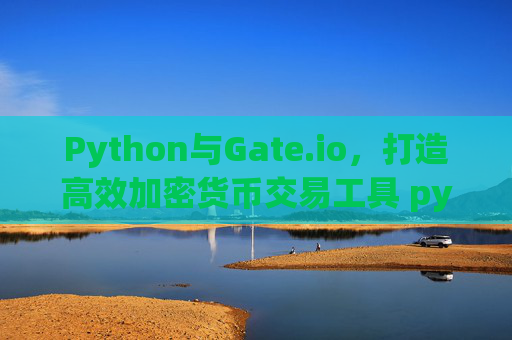本文目录导读:
- **1.1 丰富的库支持**
- **1.2 易于学习和使用**
- **1.3 强大的社区支持**
- **3.2 安装必要的Python库**
- **3.4 使用原生REST API**
- **4.1 简单的均线策略**
- **4.2 执行交易**
- **6.1 设置止损止盈**
- **6.2 回测策略**
在当今快速发展的加密货币市场中,自动化交易和数据分析变得越来越重要,Python作为一种强大的编程语言,以其简洁的语法和丰富的库生态系统,成为加密货币交易者的首选工具之一,而Gate.io作为全球知名的数字资产交易平台,提供了丰富的API接口,使得开发者可以轻松构建自动化交易策略、数据分析工具和实时监控系统,本文将探讨如何利用Python与Gate.io的API结合,打造高效的加密货币交易工具。 1. Python在加密货币交易中的优势 Python拥有众多适用于金融和数据分析的库, Pandas:用于数据处理和分析。 NumPy:支持高效的数值计算。 Matplotlib/Seaborn:用于数据可视化。 Requests:用于HTTP请求,方便与交易所API交互。 CCXT:一个支持多交易所的统一API库。 Python语法简洁,适合快速开发和测试交易策略,即使是非专业程序员也能快速上手。 Python拥有庞大的开发者社区,遇到问题时可以轻松找到解决方案或开源项目参考。 2. Gate.io简介 Gate.io(原比特儿)是一家全球领先的数字资产交易平台,提供现货、合约、理财等多种交易服务,其特点包括: 高流动性:支持多种主流和小众加密货币交易对。 API支持:提供REST和WebSocket API,方便开发者进行自动化交易。 安全性:采用多重安全措施保护用户资产。 3. 使用Python连接Gate.io API 3.1 获取Gate.io API密钥 1、登录Gate.io账户,进入API管理页面。 2、创建API Key,并设置适当的权限(如交易、查询等)。 3、记录API Key和Secret Key,用于后续认证。 3.3 使用CCXT库连接Gate.io CCXT是一个支持多交易所的Python库,可以简化API调用: 如果希望更灵活地控制请求,可以直接使用 4. 构建自动化交易策略 5. 进阶应用:WebSocket实时数据监控 Gate.io支持WebSocket API,可以实时获取市场数据: 6. 风险管理与优化 使用 7. 总结 Python与Gate.io的结合为加密货币交易者提供了强大的工具,无论是数据分析、自动化交易还是实时监控,都能高效实现,通过本文的介绍,读者可以: 1、掌握Python连接Gate.io API的方法。 2、构建简单的交易策略并执行自动化交易。 3、利用WebSocket实现实时数据监控。 4、优化策略并管理风险。 随着AI和机器学习的发展,Python在量化交易中的应用将更加广泛,而Gate.io等交易所的API也将不断升级,为开发者提供更多可能性。 8. 参考资料 - [Gate.io API文档](https://www.gate.io/docs/developers/apiv4/zh_CN/) - [CCXT官方文档](https://docs.ccxt.com/) - [Python量化交易实战书籍] 希望本文能帮助读者更好地利用Python和Gate.io构建高效的加密货币交易系统! 🚀**1.1 丰富的库支持
**1.2 易于学习和使用
**1.3 强大的社区支持
**3.2 安装必要的Python库
pip install requests ccxt pandas
import ccxt
初始化Gate.io交易所对象
gateio = ccxt.gateio({
'apiKey': 'YOUR_API_KEY',
'secret': 'YOUR_SECRET_KEY',
})
获取BTC/USDT的当前价格
ticker = gateio.fetch_ticker('BTC/USDT')
print(f"BTC当前价格: {ticker['last']} USDT")**3.4 使用原生REST API

requests库:
import requests
import hashlib
import hmac
import time
api_key = "YOUR_API_KEY"
secret_key = "YOUR_SECRET_KEY"
base_url = "https://api.gateio.ws/api/v4"
def generate_signature(secret, payload):
return hmac.new(secret.encode(), payload.encode(), hashlib.sha512).hexdigest()
获取账户余额
timestamp = str(int(time.time()))
path = "/spot/accounts"
payload = f"{timestamp}\nGET\n{path}\n"
signature = generate_signature(secret_key, payload)
headers = {
"KEY": api_key,
"Timestamp": timestamp,
"SIGN": signature,
}
response = requests.get(f"{base_url}{path}", headers=headers)
print(response.json())**4.1 简单的均线策略
import pandas as pd
获取历史K线数据
ohlcv = gateio.fetch_ohlcv('BTC/USDT', '1d', limit=100)
df = pd.DataFrame(ohlcv, columns=['timestamp', 'open', 'high', 'low', 'close', 'volume'])
计算均线
df['MA10'] = df['close'].rolling(10).mean()
df['MA50'] = df['close'].rolling(50).mean()
生成交易信号
df['signal'] = 0
df.loc[df['MA10'] > df['MA50'], 'signal'] = 1 # 买入信号
df.loc[df['MA10'] < df['MA50'], 'signal'] = -1 # 卖出信号
print(df.tail())**4.2 执行交易
模拟交易逻辑
if df.iloc[-1]['signal'] == 1:
print("发出买入信号")
# gateio.create_order('BTC/USDT', 'market', 'buy', 0.001) # 实际下单
elif df.iloc[-1]['signal'] == -1:
print("发出卖出信号")
# gateio.create_order('BTC/USDT', 'market', 'sell', 0.001) # 实际下单
import websocket
import json
def on_message(ws, message):
data = json.loads(message)
print(f"最新价格: {data['close']}")
def on_error(ws, error):
print(f"错误: {error}")
def on_close(ws):
print("连接关闭")
def on_open(ws):
ws.send(json.dumps({
"time": int(time.time()),
"channel": "spot.tickers",
"event": "subscribe",
"payload": ["BTC_USDT"]
}))
ws = websocket.WebSocketApp(
"wss://api.gateio.ws/ws/v4/",
on_open=on_open,
on_message=on_message,
on_error=on_error,
on_close=on_close
)
ws.run_forever()**6.1 设置止损止盈
假设当前持仓BTC
current_price = gateio.fetch_ticker('BTC/USDT')['last']
stop_loss = current_price * 0.95 # 5%止损
take_profit = current_price * 1.10 # 10%止盈
if current_price <= stop_loss:
print("触发止损,卖出BTC")
# gateio.create_order('BTC/USDT', 'market', 'sell', 0.001)
elif current_price >= take_profit:
print("触发止盈,卖出BTC")
# gateio.create_order('BTC/USDT', 'market', 'sell', 0.001)**6.2 回测策略
backtrader等库进行历史数据回测,优化交易参数。




